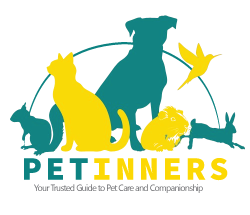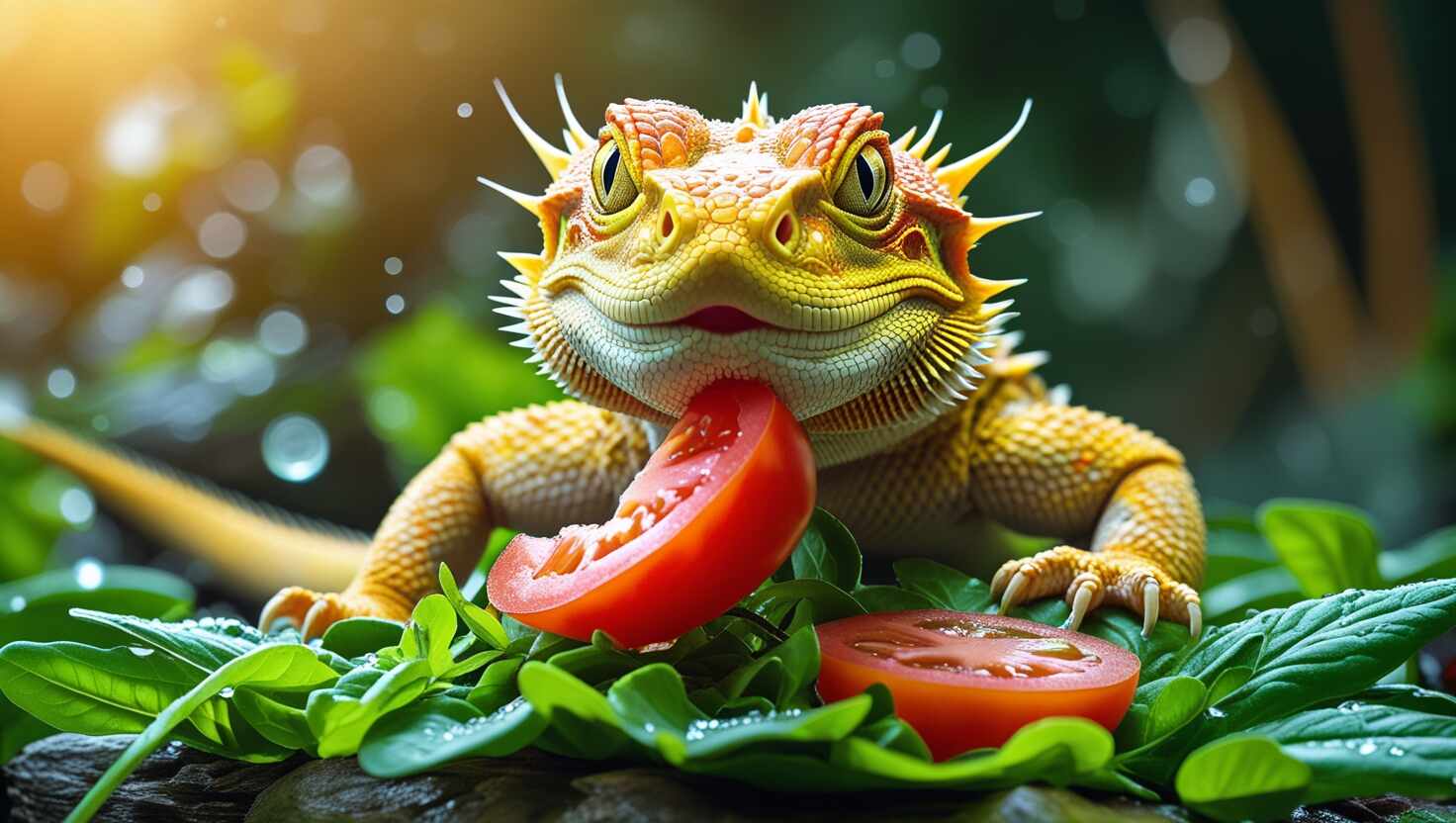Can bearded dragons eat tomatoes
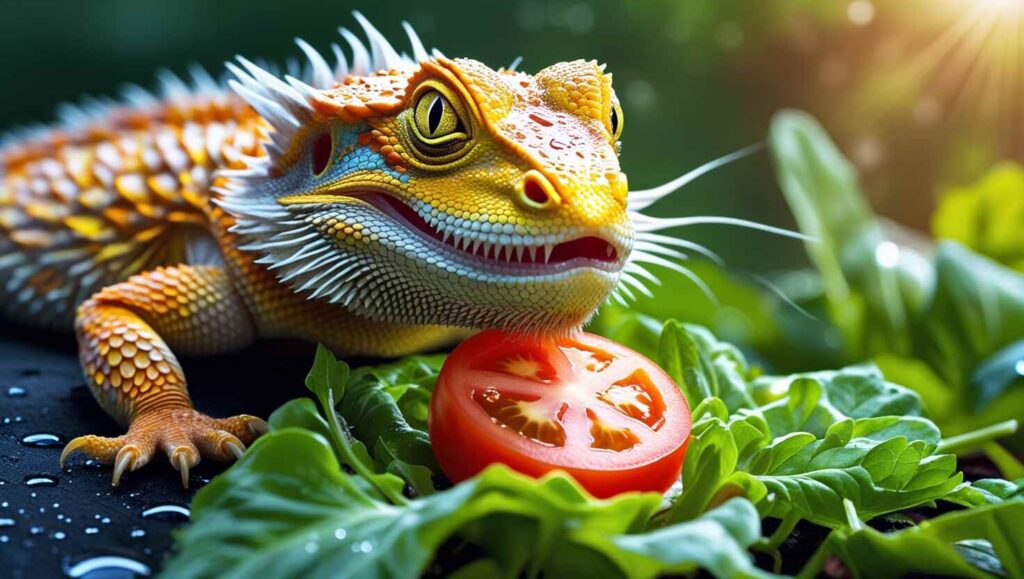
Yes, bearded dragons, or beardies, can eat tomatoes, but only in small amounts. Tomatoes contain water, calcium, phosphorus, and Vitamin A, which provide important nutrients. However, too much can upset their belly. Use tomatoes as a treat or a garnish on their greens to keep them healthy and balanced.
Nutritional Profile and Benefits
Key Nutrients
Tomatoes, including red tomatoes, grape tomatoes, and cherry tomatoes, contain 94.52 g of water content per 100g serving. They provide 18 calories, carbohydrates (3.89 g), sugars (2.63 g), fat (0.2 g), and proteins (0.88 g). Additionally, they contain fiber (1.2 g), which aids digestion.
Vitamins and Minerals
Tomatoes are rich in vitamins such as Vitamin A (833 IU), Vitamin C (13.7 mg), and beta carotene (449 micrograms). However, the calcium (10 mg) and phosphorus (24 mg) content leads to a Ca:P ratio of 0.4:1, considered poor for calcium balance.
Health Risks
Due to high acid levels with a pH of 4.5, tomatoes may cause mouth irritation or stomach irritation in beardies. Oxalates at 26 mg also block calcium absorption, increasing the risk of calcium deficiency. This can lead to long-term health issues without proper dietary balance.
Feeding Frequency
Because of the poor calcium to phosphorus ratio and areas of concern like high oxalates, tomatoes should only be given as a treat. Feeding them once per month ensures your beardie stays healthy without risk of liver issues or other complications.
Best Way to Serve
To maintain proper nutrition, garnish your beardie’s greens with small tomato slices occasionally. Always pair with calcium supplementation to counterbalance the phosphorus levels. Avoid overfeeding, keeping tomatoes a special, fantastic addition to a balanced diet.
Risks and Concerns
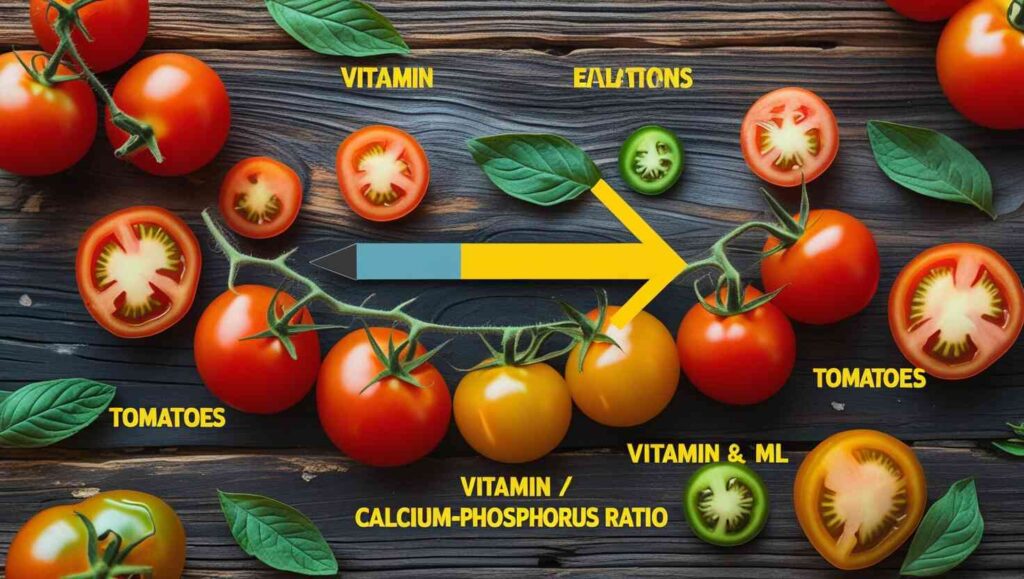
Though tomatoes provide some benefits, they should not be a staple in a beardie’s diet. The high water content can cause digestive issues like severe diarrhea and stomach irritation. Their acidic nature (pH 4.5) may upset the digestive system, much like citrus fruits with citric acid.
Key risks include:
- High phosphorus and oxalates (26 mg per 100g serving) block calcium absorption.
- The calcium-to-phosphorus ratio (twice as much phosphorus) is far from the recommended ratio for proper bone health.
- This imbalance can cause metabolic bone disease (MBD), which weakens the body by reducing bone mass, particularly in juveniles and breeding females.
- Severe cases may paralyze or even kill the reptile if left untreated.
Although vitamin A and beta carotene are present, overfeeding tomatoes alongside vitamin A supplements can lead to parathyroid or kidney issues. Maintaining calcium levels is crucial for healthy growth and overall body maintenance.
For your beardie’s health, limit tomatoes to an occasional garnish in a daily salad. Always consult a vet if you notice any digestive distress or health issues.
Frequency and Alternatives
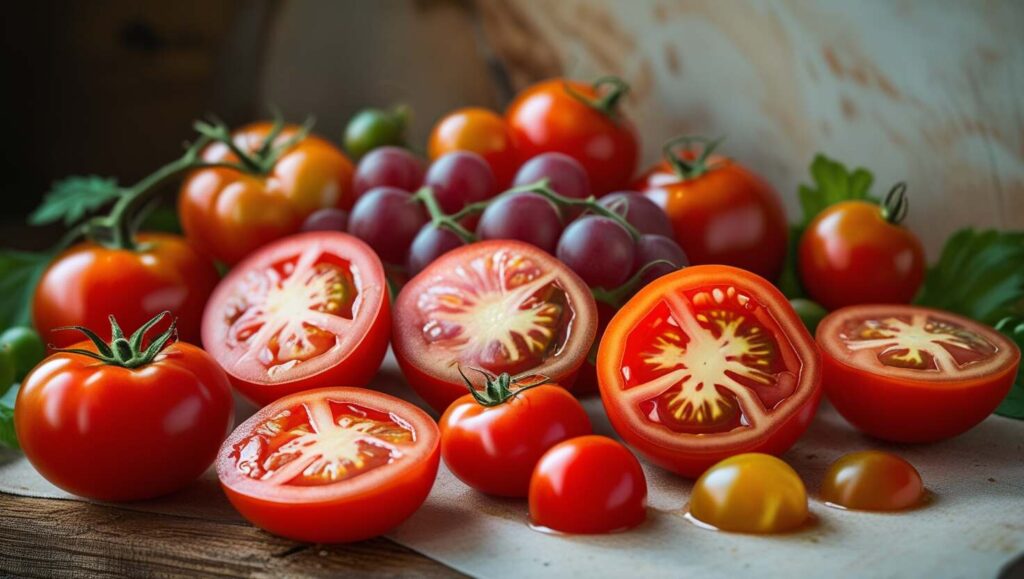
Tomatoes should be fed to bearded dragons as an occasional piece due to red flags like oxalates, which prevent the absorption of calcium. Over time, this can lead to metabolic bone disease (MBD). While tomatoes have health benefits, including vitamin A for vision, growth, reproduction, and the immune system, they aren’t ideal as a staple food.
The lycopene in tomatoes gives them their red color and supports heart health, healthy skin, and reduces inflammation. However, feeding them too often can cause more harm than good. Responsible owners should focus on a balanced diet to prevent long-term issues.
Alternatives include dark leafy greens like collard greens, dandelion greens, mustard greens, kale, and watercress. You can also add vegetables and fruits like acorn squash, mango, green beans, broccoli, and sweet potato.
Avoid iceberg and romaine lettuce due to their low nutrient content. Following a proper meal schedule with varied foods helps ensure your pet thrives. Being a responsible owner means making smart, well-rounded dietary choices.
Preparation and Feeding
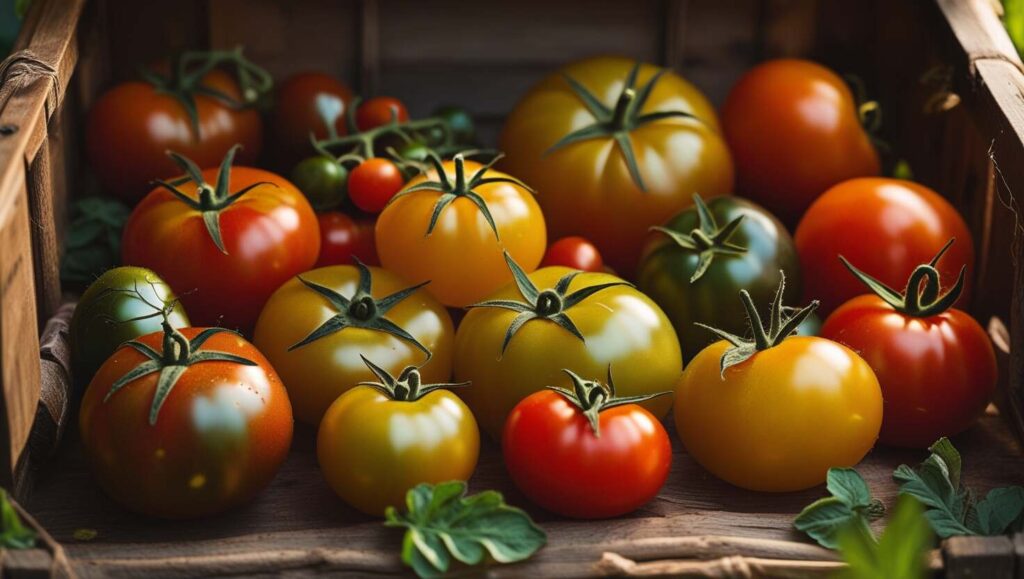
Tomatoes can be fed to bearded dragons as a treat, but proper preparation is essential to prevent health risks. Below are instructions and recommendations for safe feeding:
- Choose ripe, raw tomatoes such as grape tomatoes, larger tomatoes, or cherry tomatoes. Avoid the nightshade family parts like stems, leaves, flowers, and vines, which contain poisonous alkaloids.
- Thoroughly wash the tomato to remove chemical residues and pesticide residues.
- Peel the skin to reduce choking risks. Then, cut the flesh into little pieces around 1 x 1 cm (⅖ inch). Remove the seeds to prevent digestive impaction.
- Offer a small portion, such as two to four slices, no more than once per month. Tomatoes have high phosphorus levels and low calcium, which can lead to health issues. Avoid overfeeding to prevent potential risks.
- Serve the tomato at room temperature in a salad of the day to entice your pet. Include other fruits and vegetables with higher nutritional value, like dandelion greens or acorn squash, to support a balanced diet. Always follow proper meal schedule for healthy adult beardies.
Conclusion
Tomatoes can be a safe, occasional treat for bearded dragons, but they are not suitable as a staple food. Though they offer some nutritional value with vitamin A, beta carotene, and lycopene, their high phosphorus levels, oxalates, and acidic nature can cause calcium absorption problems, leading to metabolic bone disease (MBD). Proper preparation is crucial—wash, peel, and cut tomatoes into small, seedless pieces to prevent digestive impaction. Serve them alongside calcium supplementation in a balanced diet rich in dark leafy greens and other vegetables. Responsible owners should limit tomato feeding to once per month and watch for signs of digestive issues or other health risks.
Kindly note: The content shared in this blog is gathered from online sources, some of which may not be verified. For accurate guidance on caring for your Bearded dragons, it is recommended to seek advice from a qualified veterinarian.
